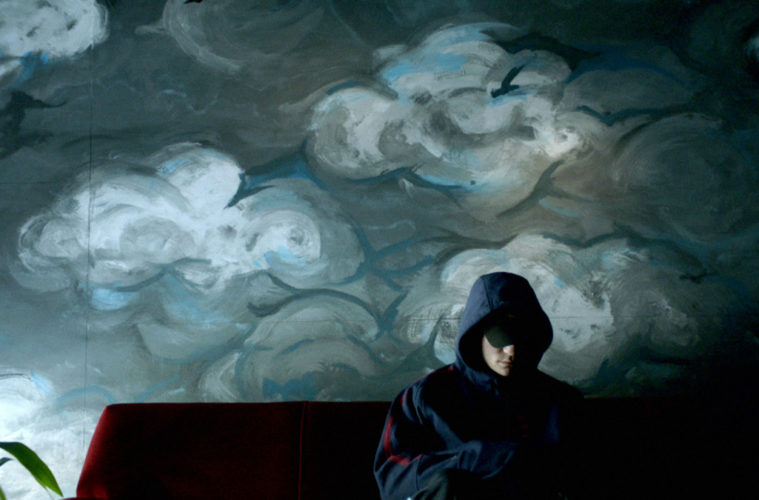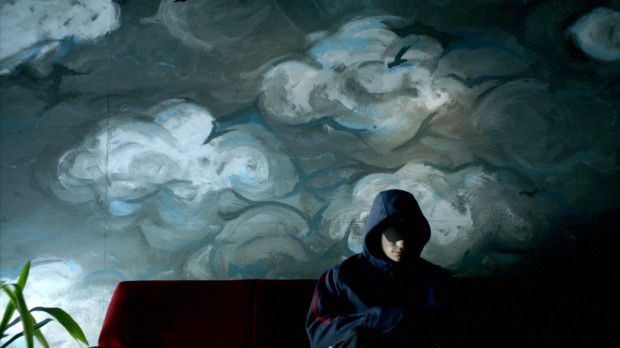
The Imposter might make you think you are watching a fictional documentary, but everything about the sad story it reveals is true. There are so many twists and turns that it’s best to go into the film without much knowledge at all, as I did earlier this year. However, in the interest of post-film discussion and potentially furthering your desire to see the film that is in limited expansion now, I have a wonderful interview with the director, Bart Layton. Speaking to me over the phone a few weeks ago, Layton and I discussed separating fact and fiction from his own subject, the research he put into the film, if he had something in mind going in, and the difficulties of dramatization in a documentary. Check it out below.
The Film Stage: Were you constantly researching as you were filming or did you hit a cut-off point on the research and go out and film?
Bart Layton: I was constantly doing research. You can do a limited amount of research before you sit down and do an interview, and during the course of an interview things emerge and stories develop. So, of course that’s part of what a documentary is about. Things are constantly unpredictable and there were certainly times when it felt like, for us, we were in a detective story.
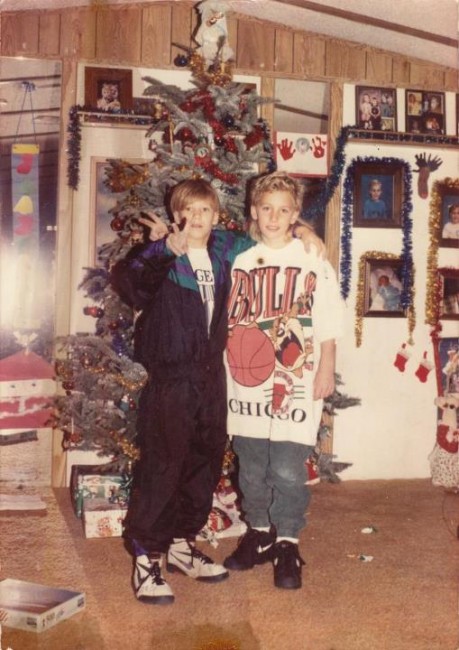
Was it a struggle to get permissions or was everyone very willing and vocal to come out and speak on this?
It was relatively straightforward to get The Imposter involved. He was back in France at that time. He wanted the opportunity to tell his side of the story. Much has been written about it and I think he felt that he hadn’t told the story in his own words. It was more difficult to get the family to participate because they felt they had participated in media interviews before which they felt hadn’t gone well for them. That they’d been portrayed negatively in the media. So they were reluctant to do that again but I think they ultimately felt that they really wanted the opportunity to tell their side of the story in their own words. That was something that was important to them. The FBI agent took some time for us to find her and the private investigator, but they fully understood what it was that we were trying to do which was to create a straight account that would allow people to tell the story that they wanted to tell. Then we managed to eventually get everyone on board. Somebody who really deserves a lot of credit for that is the co-producer, Poppy Dixon, who’s a young English woman who spent a long time in San Antonio trying to find the interviewees.
So what was the inspiration here to have the dramatizations?
Well, I felt like I didn’t have a great deal of archival footage. There was some home video recording which was scene in the film, but really we were very limited in that. But I also think the story is so extraordinary on so many levels and it’s so much stranger in reality in some ways that it felt like it required a treatment in some ways stranger than a documentary. I certainly don’t think you can apply this treatment to every kind of story. I think the story warranted this treatment which occupies this space occasionally which is between the real world and the movie world, because if you were to read the book of this story as a work of fiction, you would probably think it was unbelievable. You would find it implausible. I felt the story warranted the dramatization. There not intended to be a fake archive. Drama in documentary is potentially dangerous or problematic where you’re presenting it as something it clearly is not. What I mean is that you’re presenting it as a fake archive where in reality it’s drama that has been created. I wanted to do the opposite here. I wanted to create something that didn’t look like reality. In fact, it looks like a heightened reality. And the idea is that this is not what must have happened to these people; it’s really what these characters want to tell you happened. It’s about subjectivity.
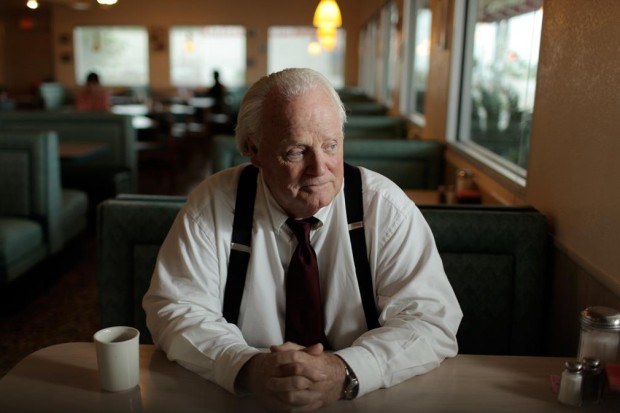
I’m curious about the beginning and how you get the audience hook, line, and sinker. You play a portion of the story, and then reverse and tell it again. Was that always the way you were going to introduce the documentary?
I felt like there were so many things that were strange about the story; that were strange about the telling of this story. The question for me was how do you reflect that in the form of a film? And I wanted it to start like a conventional documentary with talking heads, and then stop and rewind and start again as a different kind of documentary. Like a film noir. I wanted to reveal right from the start that everything is not quite as it seems. There are conflicting versions of events; different versions of events that you need to see from different perspectives to understand what this story is going to be about.
Speaking about The Imposter himself, it seems like there is a flamboyance to him. Would you agree with that?
Yeah, I think that’s true. I think he is someone who has occasionally confused attention with affection. I think that’s probably part of his psychology.
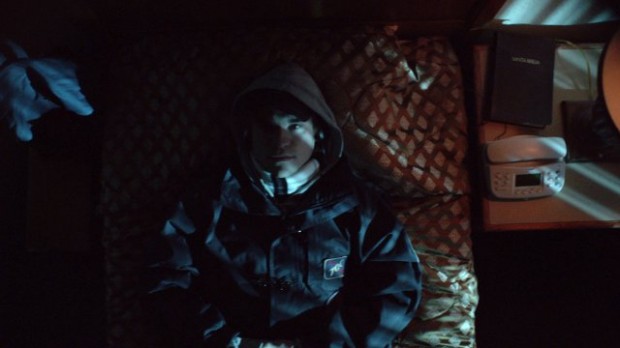
When interviewing him, did you have a hard time trying to filter through what was fact and what was fiction?
I think that’s a very good question as well. I think you touched on something which is in some ways a key to the film because, yea, you do have a hard time. You know that you are sitting down, talking to someone that has had a career of lying, manipulating, and pretending to be someone that he’s not. And in a sense you’ve got your ultimate unreliable witness. I thought that was incredibly interesting. And there are a few ways of dealing with that. One is that before you even sit down to make the film, you make a decision that this guy cannot be trusted and nothing he says can be believed. And you only include things which sort of prove that thesis.
But that’s not the film I wanted to make. What I thought was most interesting is that this is a story in many ways about what we choose to believe. Possibly not just about deception but equally it’s about self-deception. With that in mind, I thought the most interesting way to tell this story is to put the audience inside the experience; inside the story. That you, as a viewer, are on the receiving end of the torment. And it’s almost like you are encouraged to become a victim or fall for it or to not fall for it. You know all along that what you’re being told is being told by an unreliable witness. So I felt like that was a much more interesting way to tell the story. Rather than we’re looking at it through a microscope at a bunch of characters that we can’t relate to on any level; this is a slightly different way of thinking about it where you can relate to all of them. Really, you have to make your own mind up about whether what you’re being told is accurate.
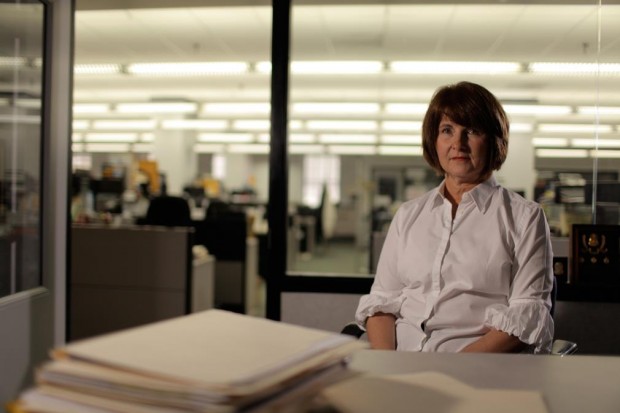
Was there any raw information that you didn’t have from a video or interview that you wanted to get across to the audience that you struggled with to align the visual with the audio?
There’s a sequence in the film where we reveal the Interpol files that were received by the FBI. And those documents we got through the Freedom of Information Act I wanted the audience to see first-hand because it’s so extraordinary on one level.
Did you have to filter through a lot of material or was this pretty straight forward in the editing process?
With [The Imposter] I shot for over two days, all day. With each of the other [interviewees] I shot a long day of four, five, or six hours. And then the process was really to construct the documentary from that and then once we felt that we had it in a shape which made sense, which was broadly the outline of the film, I went and storyboarded and wrote the drama elements. But of course the drama doesn’t have dialogue in it. Really, the idea with those were to create atmosphere and visuals. The way I’ve described it previously, which I think is probably the best way to think about it: If a storyteller tells you an extraordinary story, you have quite a visual experience. You have a story or a movie that plays in your mind. And it was that that I was trying to recreate.
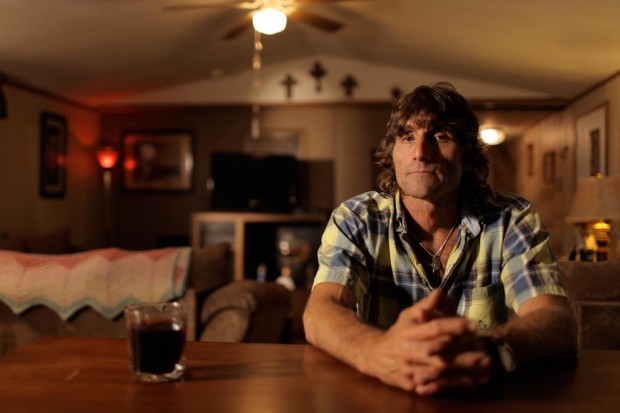
The Imposter is now in limited release.

